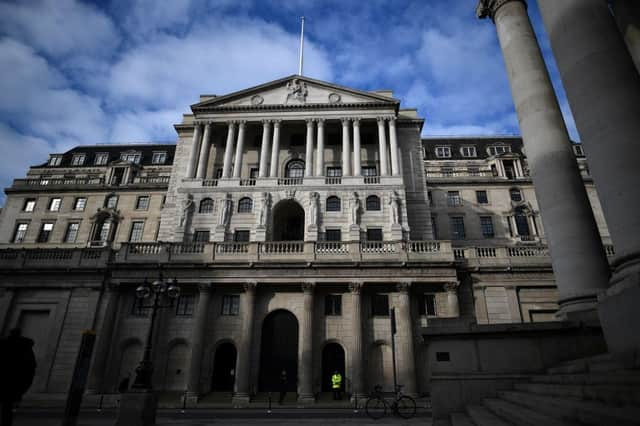Digital currency plans must be prudent - comment


At the same time, the Financial Conduct Authority recently revealed that more and more people in the UK have invested in cryptocurrencies at some point. While Christine Lagarde noted that the fintech revolution questions the role of the state in providing money, governments and central banks are not going down without a fight.
A group of central banks from around the world, including the Bank of England (BoE) are engaged in an initiative to share their experiences of potential use cases for Central Bank Digital Currencies (CBDC), with the BoE releasing its own discussion paper earlier this year.
Advertisement
Hide AdAdvertisement
Hide AdThe fact that China’s experiment with a digital renminbi (seen by some as a real challenger to the dollar in global supremacy), which reportedly started in 2014 and has this year launched in four cities in time for the Beijing Winter Olympics 2022, will not have gone unnoticed.
CBDC is a type of currency that exists solely in digital form. There are no bank vaults or physical transfers of cash. Despite this, the BoE is at pains to stress that it would be fundamentally different to a cryptocurrency such as Bitcoin. A CBDC would be a government-issued digital pound sterling, whereas many cryptoassets are privately issued and not backed by a central party.
Among its potential advantages, it could enhance market resilience by adding an alternative mechanism for payments, improve cross-border payments and act as a tool for unconventional monetary policy, which would be of particular benefit in a world of extremely low, or even negative, interest rates. It could increase financial inclusion, security and consumer protection and improve the efficiency of social welfare and disaster relief programmes.
However, a move to a CBDC could upend the role of commercial and retail banking. Risks of bank disintermediation and systemic funding instability as households and businesses rush to a theoretically more stable CBDC are very real. There are also key civil liberty issues to consider. One of the main benefits to using cash is privacy and protection from online frauds and consumer profiling.
A CBDC could be monitored, in real time, by the state. Monitoring where and how money is being spent would help with the fight against fraud, tax evasion and money laundering, but it is also another aspect of our private lives being handed over and reduced to datasets. What is to stop, to take one extreme example, our accounts being frozen or our savings and mortgage interest rates being partially determined by our alcohol spending habits?
As consumer understanding continues to increase around digital money, I expect the BoE to bring its CBDC plans to fruition in due course. While this would ensure they keep up with other central banks around the globe and fight off challenges from the likes of Facebook, it must be structured to safeguard individual security and privacy.
Stuart Gillies, associate and financial services specialist at law firm CMS
A message from the Editor:
Thank you for reading this article. We're more reliant on your support than ever as the shift in consumer habits brought about by Coronavirus impacts our advertisers.
If you haven't already, please consider supporting our trusted, fact-checked journalism by taking out a digital subscription.
Comments
Want to join the conversation? Please or to comment on this article.